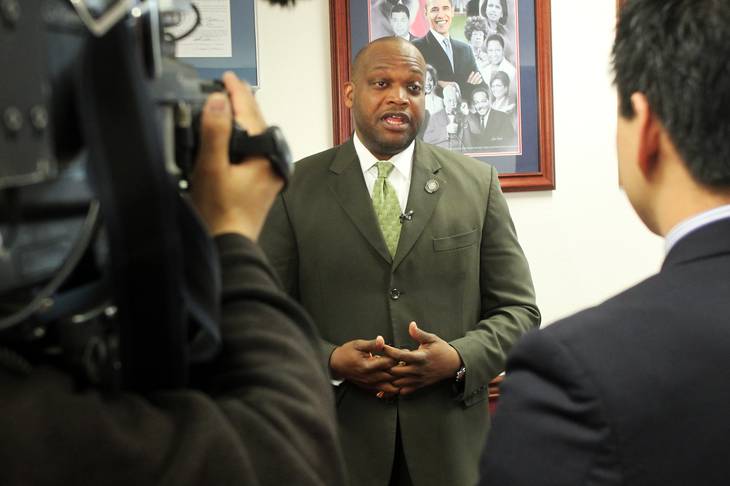A legislative committee charged with studying the impact of technology on the gaming industry may consider what, if anything, the state can do to protect licensed online poker sites from competition from illegal offshore casinos.
A recommendation to consider options was made today at the inaugural meeting of a 13-member interim study committee.
Chaired by Assembly Majority Leader William Horne, who will be term-limited out of office next year, the committee discussed legislative remedies to issues involving online gaming, the ongoing feud between restricted and nonrestricted gaming licensees and the changing effects technology has on mobile and social gaming.
The committee is scheduled to meet three more times in the next four months with the goal of developing proposals for the 2015 legislative session.
Former Gaming Control Board Chairman Mark Liparelli, a nonvoting appointee to the committee, said one of the biggest challenges to the state’s fledgling online poker industry is competition from illegal offshore sites. He said Station Casinos’ Ultimate Poker and Caesars Entertainment’s World Series of Poker sites lose money to offshore sites and other future Nevada licensees will face the same problem when they’re operating.
Current Control Board Chairman A.G. Burnett, also a nonvoting member of the committee, concurred that offshore competitors are a problem, but that it’s a matter better addressed by federal authorities.
The U.S. Justice Department has had limited success preventing play with offshore companies with attempts to block money transactions and arresting executives of those companies when they’re in the United States. Generally, federal authorities have not gone after poker players even though the playing is illegal in most states.
Online poker play began within the state’s boundaries on April 30 and since then, New Jersey and Delaware have approved play within their borders. Various forms of legislation are pending or are on hold in California, Texas, Mississippi, Iowa, Illinois, Pennsylvania, Massachusetts, Hawaii, Washington and Louisiana. Utah and Maine have opted out of any form of online wagering.
A federal proposal for online poker also is on hold.
Committee members had mixed feelings about other technology-related legislative proposals:
Committee members are lukewarm toward developing any new legislation on restrictive and nonrestrictive licensing until effects of legislation approved in the last session plays out. New rules on food service and square footage were implemented on restricted licenses when the Dotty’s tavern chain became popular. The Nevada Resort Association lobbied for tighter restrictions when some of the smaller casinos took market share from the nonrestricted properties, which are required to have hotel rooms and other amenities for their licenses.
Committee members also were concerned that any additional regulatory requirements would be unsuccessful without additional money budgeted for the Control Board for enforcement.
Sen. Richard “Tick” Segerblom is hoping for reconsideration of a plan to allow gambling on legislative races — a common practice at European sports books.
Committee members are wanting a status report on Gov. Brian Sandoval’s efforts to develop gaming compacts with other states that have legalized online poker. Legislation approved in 2012 gave the governor authority to negotiate compacts with other states and Sandoval indicated last year that there have been preliminary talks with Delaware about letting players there play at Nevada sites and Nevada residents to play on Delaware sites.
Horne also noted that committee members could also propose the repeal of onerous regulations as they set their work plan.
